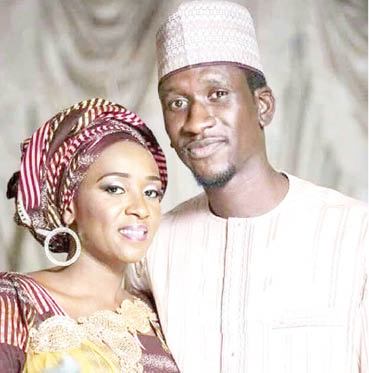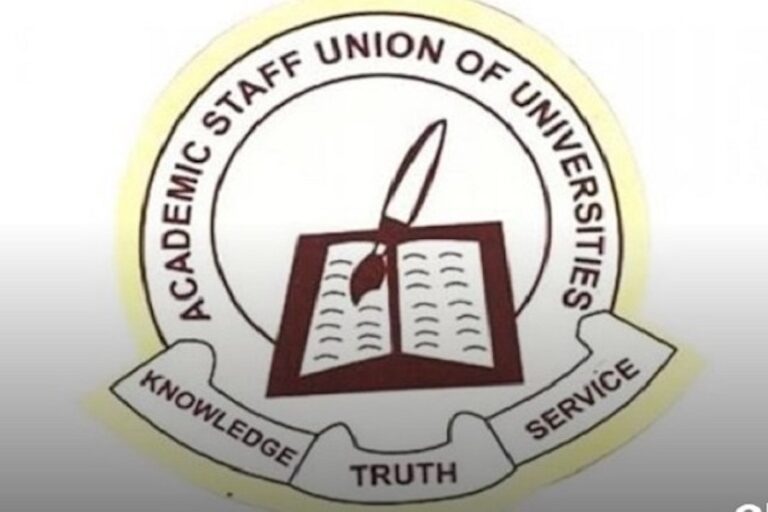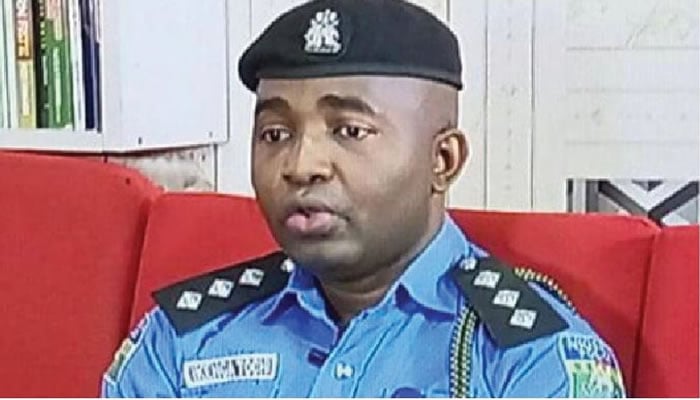
The federal government has officially withdrawn the controversial pardon earlier granted to Maryam Sanda and several convicts of serious crimes, including drug traffickers, kidnappers, and corrupt officials, following a backlash.
President Bola Ahmed Tinubu approved a revised and final list of 120 beneficiaries of the presidential prerogative of mercy, drastically reducing the initial 175 names earlier publicised. Those delisted include convicts for murder, corruption, kidnapping, human trafficking, and drug-related offences.
The final list was released on Tuesday in a statement by the Attorney-General of the Federation and Minister of Justice, Lateef Fagbemi (SAN), titled “Presidential Prerogative of Mercy Exercise Concluded with Issuance of Instruments of Release.”
The latest announcement also includes some reforms such as the president directive for the immediate relocation of the Secretariat of the Presidential Advisory Committee on Prerogative of Mercy from the Federal Ministry of Special Duties to the Federal Ministry of Justice in line with best practices and the compulsory consultation with relevant prosecuting agencies to ensure that only persons who fully meet the stipulated legal and procedural requirements benefit from future exercises.
Of the 120 gazetted beneficiaries, 15 were granted clemency, 15 granted pardon, four commuted from death sentence to life imprisonment, and 86 had their sentences reduced.
A source in the justice ministry said the 30 could be released immediately, while persons whose sentences were reduced, would complete their sentence before regaining freedom.
The statement reads: “It is to be recalled that following consultations with the Council of State, the President received concerns on the recommended list and consequently initiated a due process review. This exercise has been completed and approved by the President. This exercise was to ensure that only persons who met stipulated legal and procedural requirements would benefit from the prerogative of mercy.
“During this final review, few persons earlier recommended were found not to have met the necessary requirements and were accordingly delisted, while in some other cases, sentences were reviewed and reduced to reflect fairness, justice, and the spirit of the exercise.
“This exercise underscores the President’s desire to balance justice with compassion and the belief that justice must not only punish, but also reform and redeem. The review was undertaken with meticulous commitment to due process to reinforce the administration’s broader commitment to justice reform and humane correctional practices in line with international standards,” he said.
Those whose death penalties were commuted to life imprisonment include Emmanuel Baba, Abubakar Usman, Khalifa Umar and Mohammed Umar.
Those granted pardon include Mrs Anastasia Daniel Nwaobia, Barr. Hussaini Alhaji Umar, Ayinla Saadu Alanama, Hon. Farouk M. Lawan, Herbert Macaulay, Major General Mamman Jiya Vatsa, Ken Saro Wiwa, Saturday Dobee, Nordu Eawo, Daniel Gbooko, Paul Levera, Felix Nuale, Baribor Bera, Barinem Kiobel and John Kpuine.
On the list of those granted clemency are; Oroka Michael Chibueze, Adesanya Olufemi Paul, Daniel Bodunwa, Hamza Abubakar, Buhari Sani, Mohammed Musa, Muharazu Abubakar, Ibrahim Yusuf, Saad Ahmed Madaki, Ex-Corporal Michael Bawa,Richard Ayuba,Adam Abubakar, Emmanuel Yusuf, Chinedu Stanley and Johnny Ntheru Udor.
Continuing, Fagbemi said the directive for the immediate relocation of the Secretariat of the Presidential Advisory Committee on Prerogative of Mercy from the Federal Ministry of Special Duties to the Federal Ministry of Justice will ensure that future exercises meet public expectations and best practices.
“This will ensure that only persons who fully meet the stipulated legal and procedural requirements will henceforth benefit from the issuance of instruments of release”, he said.
How public outcry forced a review
The new list, which was shrunk to 120 from the 175 announced by presidential spokesman, Bayo Onanuga, followed public outcry over the individuals contained in the list.
Some of controversial names on the list for presidential clemency included Maryam Sanda, sentenced to death in 2020 for culpable homicide; Abiodun Elemero, sentenced to life imprisonment in 2014 for cocaine hawking. Also, a notorious kidnapper, Kelvin Oniarah’s sentence was reduced from 20 years to 13 years while several drugs dealing convicts also benefited in one way or the other.
Politicians, civil society organisations, media organisations and lawyers had criticised the clemency and pardons as having the potentials to cause a miscarriage of justice.
Particularly, the family of the late Bilyaminu Bello expressed disappointment over the presidential pardon granted to Maryam Sanda, who was convicted and sentenced to death for the murder of her husband.
In a statement released on signed by Dr. Bello Haliru Mohammed (Dangaladiman Gwandu) on behalf of the family, the relatives of the deceased described President Bola Ahmed Tinubu’s decision to grant Sanda clemency as a “cruel reopening of healing wounds” and a grave injustice to the memory of their loved one.
Bilyaminu’s family said they were deeply hurt by Maryam’s release, describing it as an attempt to appease her family while disregarding the lasting anguish inflicted on the victim’s relatives, friends, and associates.
Maryam Sanda’s conviction for the culpable homicide of her husband, whom she stabbed to death during a domestic dispute in their Abuja home, remains one of Nigeria’s most high-profile cases of domestic violence and spousal murder.
Sanda was arraigned before an FCT High Court, where she maintained her innocence throughout the trial.
After a protracted legal battle that drew nationwide attention, Justice Yusuf Halilu, in January 2020, found her guilty of killing her husband and sentenced her to death by hanging. She has spent six years and eight months at the Suleja Medium Security Custodial Centre.
But the Bilyaminu’s family said Sanda’s release represents “the worst possible injustice any family could be made to go through for a loved one,” describing her as a “certified convicted murderer” who had shown no remorse throughout her trial and appeals.
They said the presidential pardon has “painfully reopened old wounds”, describing Sanda’s release as a grave injustice that makes the victim’s life seem insignificant.
The family also faulted the rationale behind the pardon, allegedly influenced by appeals from Sanda’s family, stressing that Bilyaminu was equally a beloved son, friend, and associate who was “grievously denied the opportunity to live and raise his children.”
Beside the backlash and outrage that trailed the pardon granted Sanda, there was outrage over the clemency granted to high profile drug traffickers, cocaine pushers and cyber-crime offenders, which many argued, would demoralise the fight against drugs, corruption and cybercrimes.
Meanwhile, the AGF Fagbemi on October 16 announced that the exercise was not final.
“The process remains at the final administrative stage, which includes a standard review to ensure that all names and recommendations fully comply with established legal and procedural requirements before any instrument of release is issued,” Fagbemi said.
Acknowledging that the final list released on Tuesday reflected public outcry, the presidency, in a statement signed by Bayo Onanuga, said President Bola Tinubu ordered a further review of the initially approved list in exercise of his discretionary powers under Section 175(1) and (2) of the 1999 Constitution (as amended), following consultations with the Council of State and consideration of public opinion.
Onanuga explained that the review became necessary given the seriousness and security implications of some offences, the need to be sensitive to the feelings of victims and society at large, the importance of boosting the morale of law enforcement agencies, and the country’s commitment to bilateral obligations.
“The concept of justice as a three-way traffic involving the accused, the victim, and the state or society also guided the review,” the statement added.
Lawyers differ on final list of prerogatives of mercy
Meanwhile, legal practitioners have expressed divergent views over the final list of presidential pardons released by the federal government.
A Senior Advocate of Nigeria (SAN), Tawo Eja Tawo, described the revised list as evidence that the president listens to public opinion and is willing to make amends when necessary. He said the action was within the president’s constitutional powers to exercise mercy.
“He has the power to commute sentences, and after this, those whose sentences were commuted and have already served their terms will be released, while those with remaining years will not be released until they complete their terms,” Tawo said.
He added that certain criteria guide the granting of presidential pardons, including good conduct, remorse, and the duration of time served. “I commend the president for listening to public opinion to review the list. For instance, Maryam Sanda’s sentence was only reduced, not cancelled, meaning she will continue to serve her term,” he said.
“What of countries where there is no death sentence? The essence of imprisonment is to correct and rehabilitate, not merely to punish,” he added.
Similarly, another SAN, Dayo Akinlaja, noted that the president’s action was fully within his constitutional prerogative, and such discretion cannot be legally questioned. “Whatever is within the constitutional prerogative of the president cannot be challenged for whatever reason. In the eyes of the law, motive is irrelevant once a person has the right to act,” Akinlaja stated.
However, some lawyers argued that aspects of the exercise raised legal and ethical concerns. E.M.D. Umukoro Esq warned that granting pardons to individuals whose convictions were not in error could undermine justice. “If the public finds that names on the list include persons rightly convicted without miscarriage of justice, it would be a travesty. Such actions weaken the administration of justice and discourage law enforcement officers who risked their lives to arrest and prosecute offenders,” he said.
Another lawyer, Jibrin Jibrin Esq, described the latest development as a potential abuse of the provisions of Section 175 of the 1999 Constitution. He argued that the president cannot unilaterally alter the list after it had been presented to and approved by the Council of State.
“The powers granted to the president under Section 175 are not absolute. The Constitution provides that he must consult the Council of State before exercising such powers. The pertinent question is whether the final list released by the presidency is the same one presented to the Council of State for approval,” Jibrin said.
He added that if the latest list differs from the one earlier approved, the presidency must clarify what transpired. “If the Council of State authorised the president to review and act as he deems just and in the best interest of the nation, then the action is proper. Otherwise, it raises constitutional questions. Nigerians deserve an explanation,” he stated.
DAILY TRUST.




